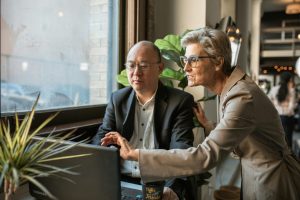Building policy reforms through lifelong learning
In today’s rapidly evolving society, the concept of lifelong learning has become more important than ever before. With constant advancements in technology, changing market trends, and shifting social norms, it is crucial for both individuals and organizations to continuously adapt and learn in order to stay relevant and competitive. One area where this is particularly crucial is in building policy reforms, as the success of any policy heavily relies on its alignment with the needs and demands of society. In this article, we will explore the role of lifelong learning in building policy reforms and how it can lead to positive and sustainable change.
The Importance of Lifelong Learning in Policy Reforms
Traditionally, policies were designed and implemented based on the knowledge and expertise of a select few individuals, usually those in positions of power or authority. However, in today’s complex and interconnected world, this approach is no longer sufficient. The world is constantly changing, and policies must adapt in order to effectively address the challenges and opportunities that arise. This is where lifelong learning comes into play – by continuously acquiring new knowledge and skills, individuals and organizations are better equipped to understand and respond to the ever-changing needs of society.
The Benefits of Incorporating Lifelong Learning in Policy Making
1. Flexibility and Adaptability
Lifelong learning promotes a mindset of adaptability and flexibility. By continuously learning and updating their knowledge, policy makers can effectively respond to changes and challenges, making necessary adjustments to policies and ensuring their relevance and effectiveness. With flexible policies, governments and organizations can quickly adapt to changing circumstances, ultimately leading to better outcomes.
2. Inclusivity and Diversity
Incorporating lifelong learning in policy making also promotes inclusivity and diversity. By constantly seeking out new information and perspectives, policy makers can better understand the diverse needs and experiences of society. This leads to more inclusive policies that address the needs of all individuals, rather than just a select few. Inclusivity and diversity are key components of effective policy making, as they ensure that policies are fair and just for all.
3. Innovation and Creativity
Lifelong learning encourages individuals to think outside the box and approach problems with a fresh perspective. This can lead to innovative and creative solutions, which are vital for effective policy making. By continuously learning and exploring new ideas, policies can be designed to address problems in novel and more effective ways.
Implementing Lifelong Learning in Policy Reforms
For lifelong learning to have a significant impact on policy reforms, it must be implemented and encouraged at all levels of society. Governments and organizations should develop policies and initiatives that promote and support a culture of lifelong learning. This can include providing access to education and training opportunities, as well as creating a supportive work environment that values continuous learning.
Individuals also have a role to play in their own lifelong learning journey. Taking the initiative to seek out new knowledge and skills, whether through formal education, online courses, or even through everyday experiences, can greatly contribute to the overall success of policy reforms.
Conclusion
Lifelong learning is a key driver of building policy reforms. By continuously learning and adapting, policy makers can create more flexible, inclusive, and innovative policies that effectively address the needs of society. Governments and organizations must recognize the importance of lifelong learning and implement strategies to promote it, while individuals must take responsibility for their own continuous learning. Only by embracing lifelong learning can we create policies that lead to positive and sustainable change for the betterment of society.










